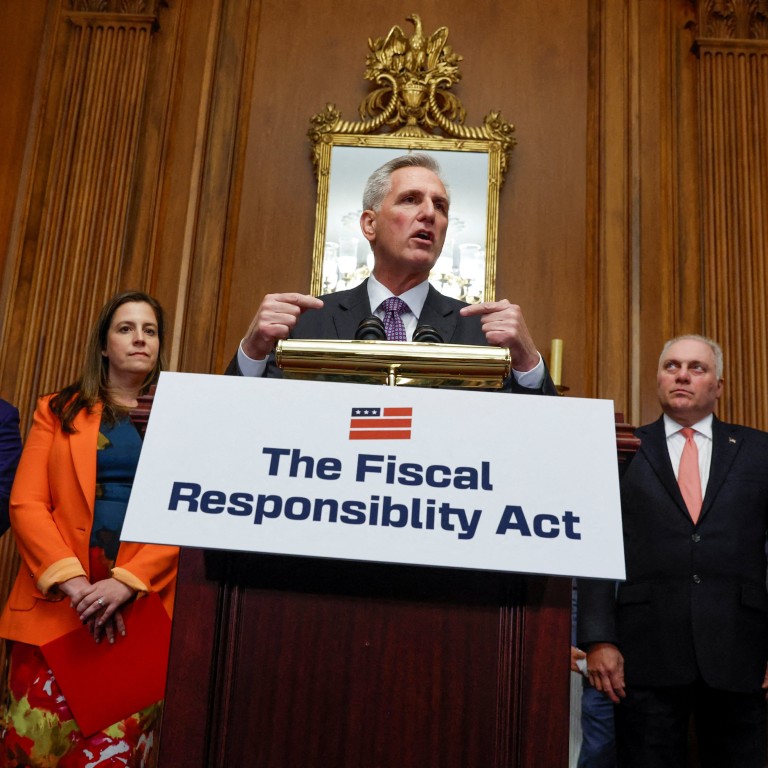
As the global balance sheet shows, quick gains are costing us our future
- The fillip from fast and loose monetary policy has ended, and growth is set to plunge to its lowest level in 30 years
- Reviving this requires thinking and acting for the long term – and it might take a deep and painful recession to get everyone on board
The simplest way is not to think about them; another way is to deny they exist. One option is to consider that these huge issues are way beyond our paygrade, so it’s really the responsibility of our political leaders or someone else to solve. We can’t solve them individually, so someone else must do the work.
We might as well add political and business dysfunctionality to the “what, me worry?” box. All I need is another media report telling me it’s all the fault of the Chinese, Russians or pesky foreigners.
My training as an accountant is to default to the balance sheet. What is that telling us?
In its latest report, McKinsey undertook four long-term scenarios to see how the world balance sheet will evolve: a return to the past; higher (interest rates and inflation) for longer; a balance sheet reset; and, productivity acceleration. Under the first, essentially more of the same policies of the past 20 years, we will have weak investments, a savings glut and sluggish growth.
In the second, higher interest rates are maintained, keeping the real rate positive so real growth and investment is stimulated, but there will be losses in real wealth.
The fourth and ideal scenario is to accelerate productivity, so that economic growth catches up with the balance sheet, and the global economy gains in income, wealth and balance sheet health.
McKinsey’s scenario-building (not forecast) comes on the heels of the World Bank’s long-term projections that the world’s potential growth rate will fall to a three-decade low over the rest of the 2020s, because all drivers have weakened, such as investment growth rates, total factor productivity (a measure of how efficiently an economy uses capital and labour) and international trade growth, even as the global labour force ages.
McKinsey argued that accelerating productivity growth will require not just policy imagination, but bold investments in youth, empowering underprivileged groups with education, skills training, health support and infrastructure. In short, think and act long term.
Economists and technologists always seem puzzled by the “missing” productivity numbers despite the rapid acceleration of computer technology. Specialists often forget that productivity is an ecosystem trait that can only show up when you manage the ecosystem’s functioning as a whole.
Asean wants no part in US-China rivalry or an unjust war over Taiwan
In other words, management and organisational skills are key to ensuring that all parts of the system function to deliver productivity as a whole, rather than in parts. You do not get productivity gains by taking short-cut drugs for a quick boost. You do it through persistent exercise and hard work.
Many policy objectives have wonderful aspirations and inspiration, but delivery is dull. This is because ecosystem building is for the long haul and takes time; those who only go for the low-hanging fruit find that these are not sweet enough or else they rot too quickly.
One defect of electoral democracy and free-market policies is that both politicians and businesses tend to focus on the short-term election or reporting cycle. Politicians need to meet a four- or five-year election cycle at the national level, but if you add local elections, most are electioneering every two years or less. The businessman who reports every quarter on profits will focus only on delivering short-term profits rather than long-term projects.
Short-term gains always come at the cost of long-term growth. How to get everyone to focus on the long term? Only through a deep recession or everyone hurting badly at the same time. Those are the sad facts from mad politics and bad economics.
Andrew Sheng writes on global issues from an Asian perspective

